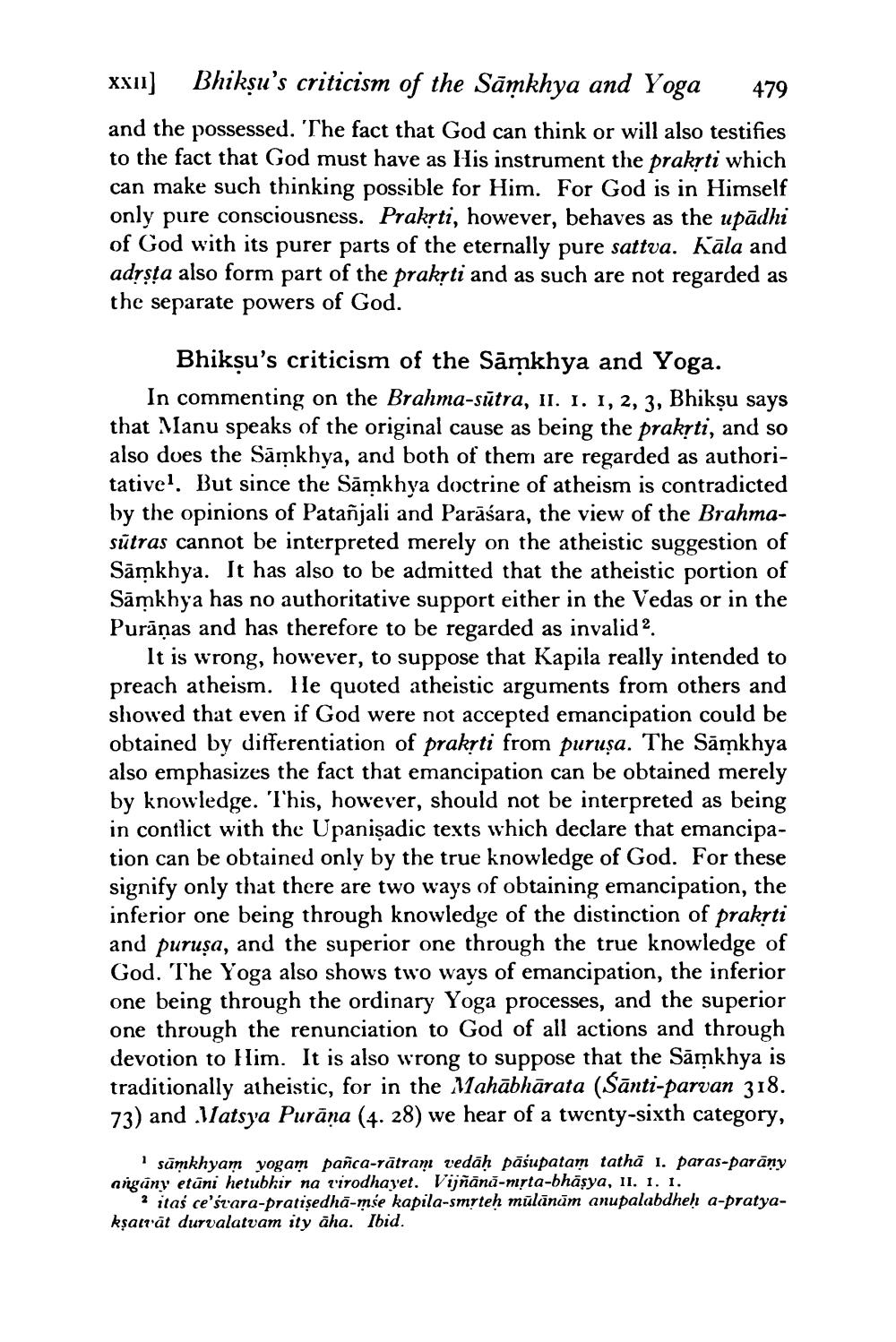________________
XX11] Bhiksu's criticism of the Sāmkhya and Yoga 479 and the possessed. The fact that God can think or will also testifies to the fact that God must have as His instrument the prakrti which can make such thinking possible for Him. For God is in Himself only pure consciousness. Prakrti, however, behaves as the upādhi of God with its purer parts of the eternally pure sattva. Kāla and adrsta also form part of the prakrti and as such are not regarded as the separate powers of God.
Bhikṣu's criticism of the Sāmkhya and Yoga. In commenting on the Brahma-sútra, 11. 1. 1, 2, 3, Bhikṣu says that Manu speaks of the original cause as being the praksti, and so also does the Sāmkhya, and both of them are regarded as authoritativet. But since the Sāmkhya doctrine of atheism is contradicted by the opinions of Patanjali and Parāśara, the view of the Brahmasūtras cannot be interpreted merely on the atheistic suggestion of Sāmkhya. It has also to be admitted that the atheistic portion of Sāmkhya has no authoritative support either in the Vedas or in the Purāṇas and has therefore to be regarded as invalid?
It is wrong, however, to suppose that Kapila really intended to preach atheism. He quoted atheistic arguments from others and showed that even if God were not accepted emancipation could be obtained by differentiation of prakrti from puruṣa. The Sāmkhya also emphasizes the fact that emancipation can be obtained merely by knowledge. This, however, should not be interpreted as being in conflict with the Upanisadic texts which declare that emancipation can be obtained only by the true knowledge of God. For these signify only that there are two ways of obtaining emancipation, the inferior one being through knowledge of the distinction of praksti and puruṣa, and the superior one through the true knowledge of God. The Yoga also shows two ways of emancipation, the inferior one being through the ordinary Yoga processes, and the superior one through the renunciation to God of all actions and through devotion to Him. It is also wrong to suppose that the Sāmkhya is traditionally atheistic, for in the Mahābhārata (Šānti-parvan 318. 73) and llatsya Purāna (4. 28) we hear of a twenty-sixth category,
sāmkhyam yogam pañca-tātram vedā” pāśupatam tathā 1. paras-parāny angány etūni hetubhir na virodhayet. Vijñānă-nista-bhāsya, II. 1. 1.
? itas ce'śkara-pratişedhā-mse kapila-smrteh mulānām anupalabdheh a-pratyakşairāt durvalatvam ity aha. Ibid.




